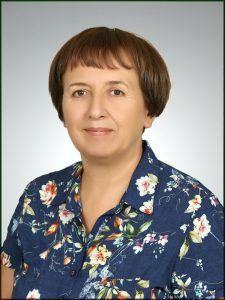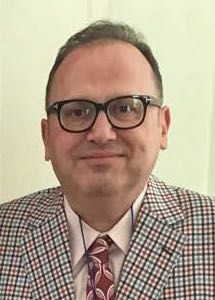Country Ambassadors

Süleyha Hilmioğlu Polat,Prof Dr, Division of Medical Mycology, Department of Microbiology, Faculty of Medicine,Ege University, 35100, Izmir, Turkey.
Email: On request
How you have helped GAFFI so far?: We have estimated the Burden of serious fungal infections in Turkey. Some of these data have been presented as a poster at TIMM-8. The report on the burden of serious fungal diseases from 1920 to 2017 in Turkey has just been published in Mycoses 2019
Personal comment on the major needs in Turkey which GAFFI should be addressing: Flucytosine and Natamycin for ophthalmic use are not available in Turkey. Antifungal drugs for treatment of invasive fungal infections are very expensive.Therapeutic drug level monitoring for voriconazole is needed. Diagnostic tools and antifungal therapy at affordable costs are needed. Harmonization and standardization/validation of some diagnostic tools and establishment of mycology reference laboratory(ies) are needed. There is a need to organize a communication strategy with the Ministry of Health on these topics.
Links to key fungal/global health institutions in Turkey: Turkish Society for Medical Mycology; Ministry of Health-Republic of Turkey; Historical papers of medical mycology from Turkey

Macit Ilkit,Prof Dr, Division of Medical Mycology, Department of Microbiology, Faculty of Medicine,
University of Çukurova, 01300, Adana, Turkey
Email: On request
How you have helped GAFFI so far?: A report on the burden of serious fungal diseases from 1920 to 2017 in Turkey is just published in Mycoses. The efforts of the project will continue. We strongly believe that life-saving essential diagnostics and antifungal medicine should be improved and will be accessible soon in Mycoses.
Personal comment on the major needs in Turkey which GAFFI should be addressing: Given its location between Europe and Asia, Turkey has a unique geographical situation, which has resulted in an abundance of knowledge concerning medical mycology, and that this has facilitated effective diagnostic techniques within the country. Importantly, a good network between medical mycologists and clinicians is established in Turkey, and therefore the local epidemiology of fungal diseases has more or less been described. However, this surely must be improved; therefore, we need a public health aspect to fight fungal diseases in Turkey. Briefly, case notification, diagnosis at reference centres and/or public lab networks, patient and health care provider education, and warnings of veterinarians should be ensured. Although there are several diagnostic gaps, most of the essential non-culture tests are available.
Links to key fungal/global health institutions in Turkey:Turkish Society for Medical Mycology; Ministry of Health-Republic of Turkey; Historical papers of medical mycology from Turkey: